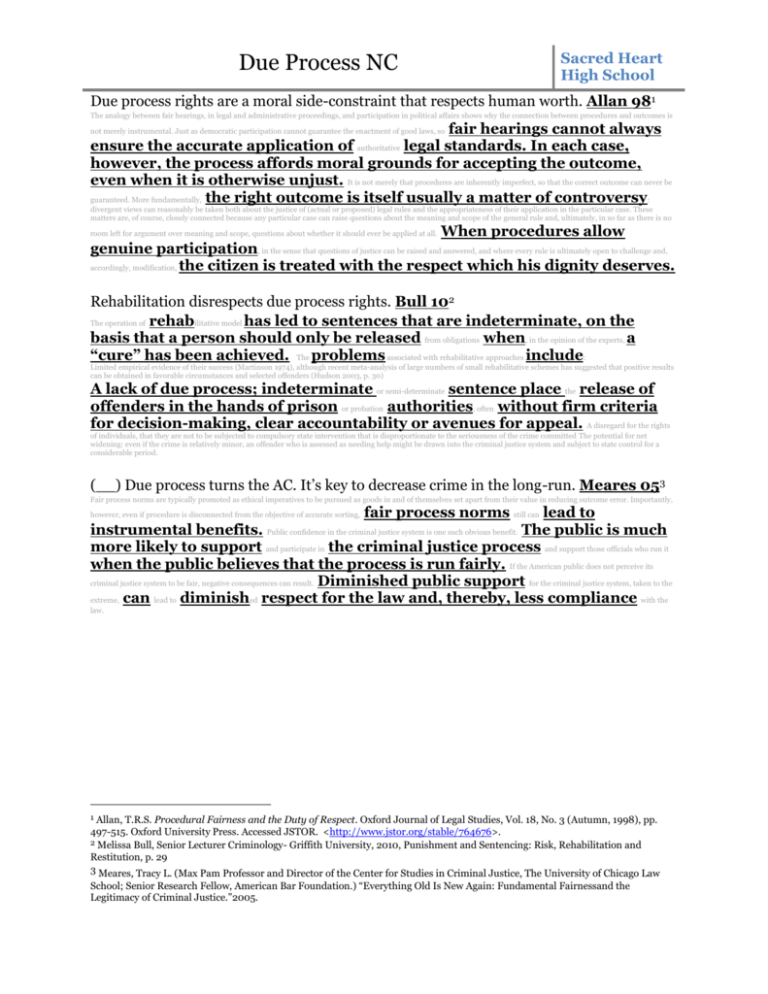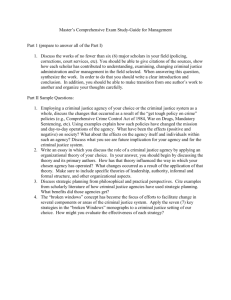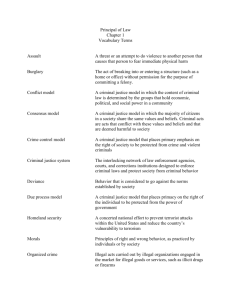Due Process NC
advertisement

Due Process NC Sacred Heart High School Due process rights are a moral side-constraint that respects human worth. Allan 981 The analogy between fair hearings, in legal and administrative proceedings, and participation in political affairs shows why the connection between procedures and outcomes is fair hearings cannot always ensure the accurate application of authoritative legal standards. In each case, however, the process affords moral grounds for accepting the outcome, even when it is otherwise unjust. It is not merely that procedures are inherently imperfect, so that the correct outcome can never be guaranteed. More fundamentally, the right outcome is itself usually a matter of controversy : not merely instrumental. Just as democratic participation cannot guarantee the enactment of good laws, so divergent views can reasonably be taken both about the justice of (actual or proposed) legal rules and the appropriateness of their application in the particular case. These matters are, of course, closely connected because any particular case can raise questions about the meaning and scope of the general rule and, ultimately, in so far as there is no When procedures allow genuine participation, in the sense that questions of justice can be raised and answered, and where every rule is ultimately open to challenge and, accordingly, modification, the citizen is treated with the respect which his dignity deserves. room left for argument over meaning and scope, questions about whether it should ever be applied at all. Rehabilitation disrespects due process rights. Bull 102 The operation of rehabilitative model has led to sentences that are indeterminate, on the basis that a person should only be released from obligations when, in the opinion of the experts, a “cure” has been achieved. The problems associated with rehabilitative approaches include: Limited empirical evidence of their success (Martinson 1974), although recent meta-analysis of large numbers of small rehabilitative schemes has suggested that positive results can be obtained in favorable circumstances and selected offenders (Hudson 2003, p. 30) A lack of due process; indeterminate or semi-determinate sentence place the release of offenders in the hands of prison or probation authorities, often without firm criteria for decision-making, clear accountability or avenues for appeal. A disregard for the rights of individuals, that they are not to be subjected to compulsory state intervention that is disproportionate to the seriousness of the crime committed The potential for net widening: even if the crime is relatively minor, an offender who is assessed as needing help might be drawn into the criminal justice system and subject to state control for a considerable period. (__) Due process turns the AC. It’s key to decrease crime in the long-run. Meares 053 Fair process norms are typically promoted as ethical imperatives to be pursued as goods in and of themselves set apart from their value in reducing outcome error. Importantly, fair process norms still can lead to instrumental benefits. Public confidence in the criminal justice system is one such obvious benefit. The public is much more likely to support and participate in the criminal justice process and support those officials who run it when the public believes that the process is run fairly. If the American public does not perceive its criminal justice system to be fair, negative consequences can result. Diminished public support for the criminal justice system, taken to the extreme, can lead to diminished respect for the law and, thereby, less compliance with the however, even if procedure is disconnected from the objective of accurate sorting, law. 1 Allan, T.R.S. Procedural Fairness and the Duty of Respect. Oxford Journal of Legal Studies, Vol. 18, No. 3 (Autumn, 1998), pp. 497-515. Oxford University Press. Accessed JSTOR. <http://www.jstor.org/stable/764676>. 2 Melissa Bull, Senior Lecturer Criminology- Griffith University, 2010, Punishment and Sentencing: Risk, Rehabilitation and Restitution, p. 29 3 Meares, Tracy L. (Max Pam Professor and Director of the Center for Studies in Criminal Justice, The University of Chicago Law School; Senior Research Fellow, American Bar Foundation.) “Everything Old Is New Again: Fundamental Fairnessand the Legitimacy of Criminal Justice.”2005.











